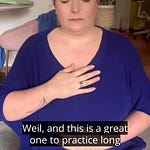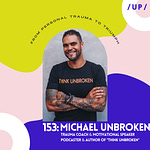Born and raised in South Carolina, 27-year-old Brittany Sumner always felt like she was different than her peers — both physically and mentally. At an early age, she began falling over without explanation, finding herself unable to climb stairs, going cross-eyed, experiencing slurred speech, choking on food, and feeling almost constant fatigue. It took some time to find a specialist who truly saw her symptoms as something more, and was finally able to diagnose her with a rare condition called Paramyotonia congenita (PMC). While the diagnosis gave her a sense of relief, it also scared her. What if she couldn't do the things she loved so much? What if she couldn't get a job because of her muscle disorder? Fast forward to her adult life: she is a wildlife biologist, outdoor educator, and conservationist. While she’s currently unemployed because of COVID-19, before the pandemic started she was working as a naturalist — taking students on hikes, teaching them about ecology and the outdoors, and leading conservation and sustainability study-abroad trips for high school students. Her passion is the environment and teaching the next generation about the importance of protecting it. While she’s busy inspiring kids, her students inspire her to get out of bed each morning, too — especially when she is having a bad pain day. In her free time, she loves to kayak, garden, hike, read, and spend time with her new niece!
Tune in as Brittany shares:
how she realized something was up…her muscles were recovering much more slowly and keeping her behind her peers physically, among other symptoms
that she grew up in rural South Carolina, which affected access to the right kind of medical care for her condition
that adrenaline makes her condition worse — so a fight-or-flight reaction can be very dangerous for her
that the diagnosis was, in part, a relief for her — because it validated her sense that she was living with a condition that was affecting her body
that PMC requires genetic testing to confirm — but nobody in her family has the gene mutation. However, there’s a 50% chance she can pass the disorder to her future children
that PMC isn’t curable, and that the side-effects of medications she tried actually made her symptoms worse — she she opted out of medication and turned to lifestyle and nutrition
that potassium and sodium most directly affect her muscle spasms
that figuring out her triggers and symptom management has been a process of trial and error
that she only connected to others living with PMC in recent years
that the severity of symptoms and response to treatment varies widely from patient to patient
her keys to successful movement: water, breaks, and snacks
that extreme cold can cause paralysis for her
how she’s working on communicating about her condition — especially because it’s invisible
how gender has impacted her medical care
how awareness is impacted by lack of research funding, and vice versa — where rare diseases often get lost in the shuffle
that those living with PMC can’t go under general anesthesia (because of its potassium content) — and she still needs to figure out how to alert emergency care if necessary
how she finds solace in nature














Share this post